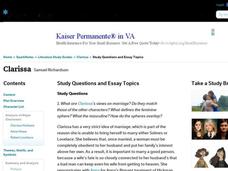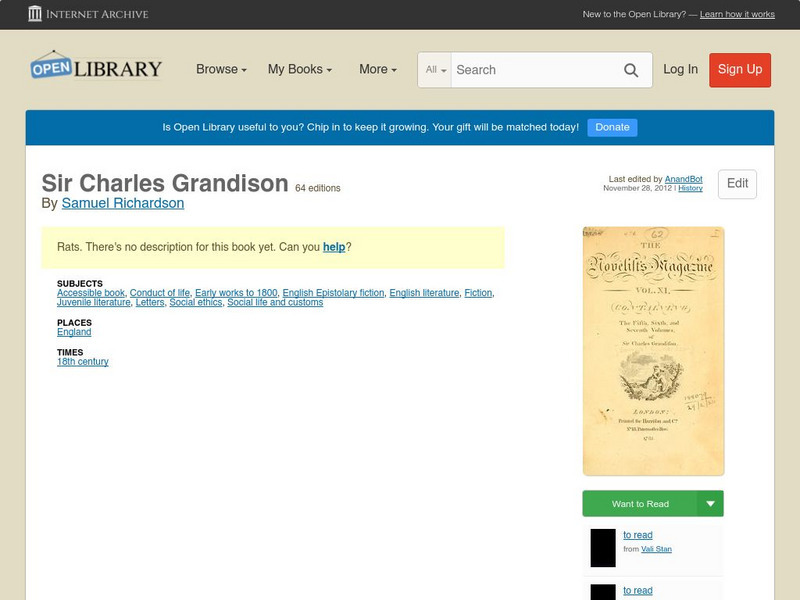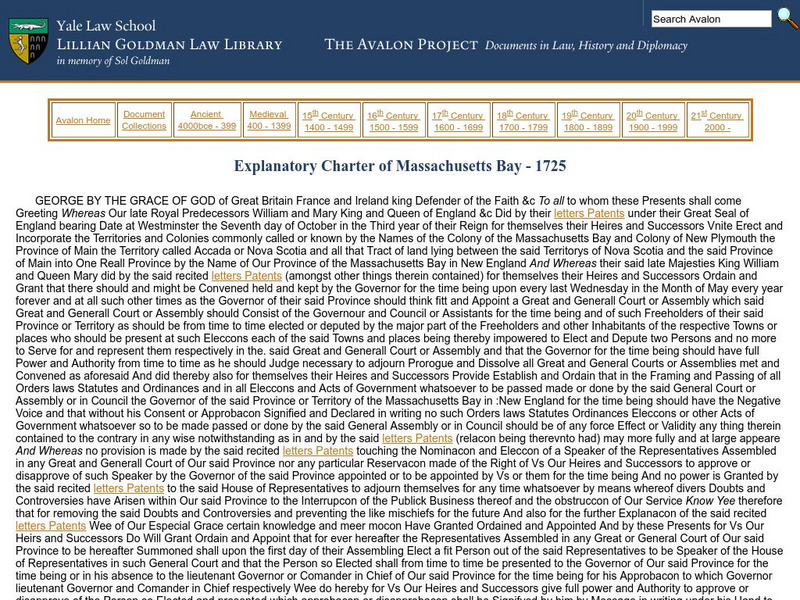Spark Notes
Clarissa by Samuel Richardson: Study Guide - Mini Essays
In this online interactive literature learning exercise, students respond to 8 short answer and essay questions about Samuel Richardson's Clarissa. Students may check some of their answers online.
British Library
British Library: Discovering Literature: Pamela
Read an overview of "Pamela" by Samuel Richardson and view additional resources such as articles and collection items.
British Library
British Library: Discovering Literature: The Rise of the Novel
This article explains how the novel took shape in the 18th century with the works of Daniel Defoe, Samuel Richardson, Henry Fielding, and Laurence Sterne, and how the book industry responded to the new genre.
British Library
British Library: Discovering Literature: Letters, Letter Writing and Epistolary Novels
This article explores the real and fictional letters published in the 18th century, from the correspondence of Alexander Pope and Ignatius Sancho to Samuel Richardson's hugely popular epistolary novel "Pamela" and the works it inspired.
British Library
British Library: Discovering Literature: An Introduction to Pamela, or Virtue Rewarded
"Pamela", or "Virtue Rewarded" evolved from a collection of model letters into a bestselling novel. This article introduces Samuel Richardson's work and its exploration of gender, class, sexual harassment, and marriage.
Open Library of the Internet Archive
Open Library: Sir Charles Grandison
This ebook version of Samuel Richardson's Sir Charles Grandison has been made available in multiple formats by the Open Library. Editions of the full novel, organized by year of publication, may be accessed here.
Yale University
Explanatory Charter of Massachusetts Bay 1725
The Charter of Massachusetts Bay, digitized by the Avalon Project at Yale Law School.
Curated OER
Educational Technology Clearinghouse: Clip Art Etc: Samuel Richardson
An English novelist; born in Derbyshire, in 1689. Like Matthew Prior, he was the son of a joiner; but unlike him, he made no effort to obscure his origin.





